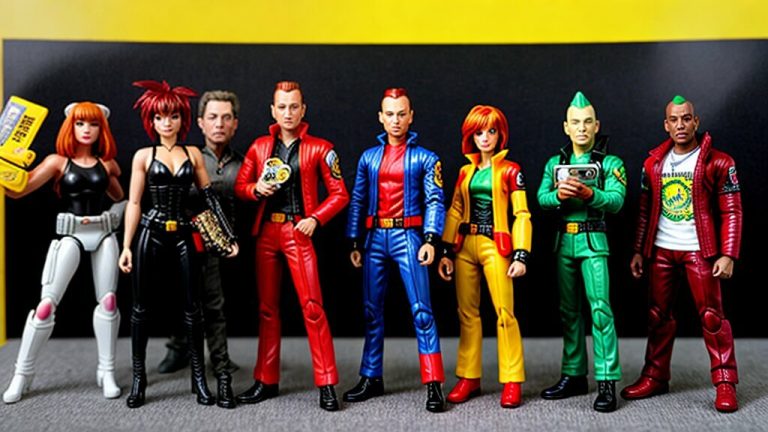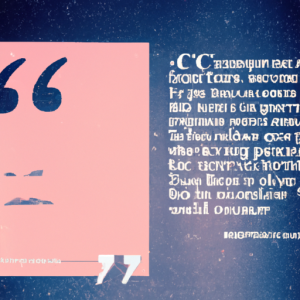“Ikiru Movie Quotes” is a unique compilation that transports readers into the captivating world of cinema. This meticulously curated collection showcases a plethora of memorable quotes from an array of movies, allowing readers to relive the magic and essence of these beloved films. With insightful descriptions of plots and characters, this product goes beyond simply presenting quotes; it provides a comprehensive experience that will leave movie enthusiasts feeling inspired and nostalgic. Whether you are a dedicated film buff or simply seeking to immerse yourself in the captivating world of storytelling, “Ikiru Movie Quotes” is the perfect companion for your cinematic journey.
Ikiru Movie Quotes
Ikiru is a critically acclaimed Japanese film directed by Akira Kurosawa. Released in 1952, this timeless masterpiece takes viewers on a profound journey of self-reflection and the exploration of life’s greatest questions. Through the thought-provoking dialogues and poignant moments, Ikiru offers a collection of quotes that inspire, challenge, and resonate with audiences around the globe. Let’s delve into the remarkable quotes from this cinematic gem and explore the themes they represent.
1. Watanabe’s realization of his wasted life
1.1 Introduction to Kanji Watanabe’s character
“Imagine what you’ll be remembered for. What you thought was useless may be on everyone’s lips tomorrow.” – Kanji Watanabe
These words from Kanji Watanabe, the protagonist of Ikiru, introduce us to a man trapped in the monotonous routine of his bureaucratic job. With his poignant reflection, he sets the stage for his remarkable transformation throughout the film.
1.2 Feeling unfulfilled and dissatisfied
“I’m tired. I’ve done nothing but work. I’ve missed everything.” – Kanji Watanabe
Watanabe’s profound realization of emptiness and regret beautifully encapsulates the feeling of dissatisfaction plaguing many individuals in their lives. This quote serves as a reminder to cherish every moment and seek fulfillment beyond mere obligations.
1.3 Recognizing the reality of mortality
“We can’t afford to waste time – or waste our lives.” – Kanji Watanabe
Watanabe’s awareness of the fleeting nature of life prompts him to reevaluate his priorities. This quote encourages us to seize the present moment and live a life of purpose and meaning, without succumbing to the paralyzing fear of mortality.
1.4 Searching for meaning and purpose
“I want to do something for people… something useful.” – Kanji Watanabe
Driven by his yearning for a meaningful existence, Watanabe embarks on a journey to find a purpose beyond the confines of his bureaucratic job. This quote inspires us to reflect on our own lives and strive to make a difference in the world around us.
2. Finding purpose in making a difference
2.1 Discovering the Tumor Diagnosis
“There’s nothing left for me, except to gaze at the cherry blossoms.” – Kanji Watanabe
Upon learning of his terminal illness, Watanabe is confronted with the reality of his limited time. This quote serves as a catalyst for his determination to create a meaningful legacy before his inevitable demise.
2.2 Devoting himself to a project with significance
“I think I’ve found something to live for. It’s a pretty small thing, but it’s all I have.” – Kanji Watanabe
Watanabe’s devotion to building a public park, a symbol of hope and community, becomes his purpose in life. This quote highlights the transformative power of dedicating oneself to a noble cause, regardless of its scale.
2.3 Determination to create a public park
“It’s wonderful. Despite everything, this empty place has become a park!” – Kanji Watanabe
As Watanabe’s project progresses and the park takes shape, he witnesses the profound impact his efforts have on the community. This quote showcases the triumph of his dedication and the ability to create something beautiful out of neglected spaces.
2.4 Inspiring transformation in the community
“Because of the park… I’ve changed. I’m not the same man I was.” – Kanji Watanabe
Through his unwavering determination, Watanabe not only brings about physical change but also catalyzes a shift in the mindset of those around him. This quote underscores the power of one individual’s actions to inspire transformation in others.
3. Embracing the present moment
3.1 Appreciating the beauty of cherry blossoms
“Isn’t it wonderful? They’re in full bloom tonight. Don’t you think they’re lovely?” – Kanji Watanabe
Watanabe’s appreciation for the beauty of cherry blossoms symbolizes his newfound ability to embrace the present moment. This quote encourages us to savor the small joys in life and find solace in the fleeting nature of beauty.
3.2 Letting go of regrets and focusing on the present
“I want to make something. Something big. A big movie. A big public park. Something to justify my life.” – Kanji Watanabe
In his pursuit of creating a legacy, Watanabe demonstrates the importance of redirecting our focus from past regrets to meaningful actions in the present. This quote motivates us to move beyond what has been and embrace the possibilities of what can still be.
3.3 Reveling in simple pleasures
“All the more reason we should drink and have fun. We’re not dead yet.” – Kanji Watanabe’s friend
Amidst the weighty themes of mortality, Ikiru reminds us of the significance of cherishing simple pleasures and celebrating life. This quote serves as a reminder to embrace joy, even in the face of adversity.
3.4 Living without the fear of judgment
“You can laugh at me all you want, but I’m not going to barter my life for the sake of appearances.” – Kanji Watanabe
Watanabe’s refusal to conform to societal expectations highlights the liberating power of living authentically. This quote encourages us to shed the fear of judgment and prioritize our own happiness and fulfillment.
4. The fleeting nature of life
4.1 Exploring the brevity of human existence
“Each of us has something to do in this world. Important things. It’s true, isn’t it?” – Kanji Watanabe
Watanabe’s contemplation of the individual significance in the vastness of existence underscores the brevity and urgency of our time on Earth. This quote urges us to recognize our own unique purpose and leave our mark on the world.
4.2 Contemplating the transience of happiness
“Happiness comes to those who cry, to those who hurt, to those who have searched, and to those who have tried. For only they can appreciate the importance of the people who have touched their lives.” – Kanji Watanabe’s colleague
This quote highlights the transient nature of happiness and reminds us that true appreciation for joy often arises from moments of tribulation. It prompts us to cherish the relationships and experiences that shape our lives.
4.3 Grasping moments that escape too quickly
“Life is all about fleeting moments. It’s no good looking back because they’ll just blur. The important thing is to be able to grab the colored moments that pass within reach.” – Kanji Watanabe’s coworker
Watanabe’s coworker beautifully encapsulates the essence of life’s fleeting nature. This quote encourages us to seize the precious moments that encapsulate joy, love, and purpose, capturing their essence before they fade away.
4.4 Reflecting on the impermanence of everything
“All men are tragic heroes. Each with his own sad little story to cling to.” – Kanji Watanabe’s coworker
This quote serves as a reminder that life is a delicate balance between joy and sorrow, and that everything we hold dear is ultimately ephemeral. It invites us to contemplate our own narratives and embrace the impermanence that defines the human condition.
5. Overcoming societal expectations and constraints
5.1 Breaking free from the monotony of bureaucracy
“People come to the court filled with hope. And look how you treat them – like a spoonful of gruel.” – Kanji Watanabe
Watanabe’s scathing critique of the bureaucratic system reflects his rebellion against institutional constraints. This quote questions the dehumanizing effects of mindless conformity and encourages us to challenge stagnation in our own lives.
5.2 Challenging traditional norms and conventions
“You bureaucrats are all the same – self-righteous to the end!” – Kanji Watanabe
Watanabe’s defiance of the self-righteousness and rigidity of bureaucratic norms emphasizes the importance of questioning and challenging social constructs. This quote inspires us to challenge authority and advocate for change when faced with injustice.
5.3 Defying societal pressure to conform
“I can’t live that way. Not me!” – Kanji Watanabe
Watanabe’s refusal to conform to societal expectations represent his courageous rebellion against a life devoid of personal fulfillment. This quote serves as a reminder to stay true to oneself and follow our own path, regardless of external pressures.
5.4 Acting on personal desires and dreams
“I’m not going to give up on life before I’ve tried it all!” – Kanji Watanabe
Watanabe’s determination to pursue his desires and explore life to the fullest is a testament to the power of embracing personal dreams. This quote encourages us to prioritize our passions and live a life that resonates with our individual aspirations.
6. Reflecting on existence and mortality
6.1 Pondering the meaning of life and death
“What is the reason to live? Why do we live? Why do we die?” – Kanji Watanabe
Watanabe’s existential questions highlight the profound themes of Ikiru. This quote invites us to embark on our own introspective journey and confront the fundamental questions that define our existence.
6.2 Facing the inevitability of our mortality
“In a hundred years, all of us will have turned to dust, and we’ll all be forgotten.” – Kanji Watanabe’s coworker
This quote serves as a somber reminder of our mortality and the ephemeral nature of human life. It urges us to recognize the transitory nature of our existence and find purpose in the limited time we have.
6.3 Questioning the purpose of human existence
“Just exactly what do you think you’re living for? Do you even have an answer to that?” – Kanji Watanabe’s friend
This quote confronts us with the fundamental question of our raison d’être. It prompts us to reflect on our purpose and question whether we are living a life aligned with our values and aspirations.
6.4 Seeking answers in the face of uncertainty
“The time has come. In the end, we all yearn to be seen, to be acknowledged. We all want purpose.” – Kanji Watanabe’s coworker
This quote encapsulates Watanabe’s quest for significance and underscores the universal human desire for connection and meaning. It encourages us to seek purpose in our own lives, even in the face of uncertainty.
7. Inspiring others to live fully
7.1 Influencing colleagues and friends
“He’s made me realize how empty my own life is.” – Kanji Watanabe’s colleague
Watanabe’s personal journey becomes a catalyst for introspection and self-reflection among those around him. This quote highlights the transformative power one individual can have on the lives of others.
7.2 Encouraging self-reflection and self-discovery
“Are we living life the way we want to, or are we simply following society’s dictates?” – Kanji Watanabe’s coworker
This quote challenges us to evaluate whether our lives are a result of personal choice or societal influence. It urges us to engage in self-reflection and embark on a journey of self-discovery to align our actions with our true desires.
7.3 Motivating others to pursue their passions
“Start doing the things you love. Time is shorter than we think.” – Kanji Watanabe’s coworker
Inspired by Watanabe’s transformation, this quote reminds us of the importance of pursuing our passions and making the most of the time we have. It serves as a motivating reminder to prioritize our own happiness and fulfillment.
7.4 Leaving a lasting impact on people’s lives
“Isn’t it wonderful? Watanabe brought the cherry blossoms to life. His spirit will linger here as long as the park exists.” – Kanji Watanabe’s coworker
This quote acknowledges the enduring impact of Watanabe’s actions, emphasizing the ripple effect one’s choices can have on the lives of others. It reminds us that our legacy lies not only in what we achieve but in the lives we touch along the way.
8. Questioning the value of bureaucracy
8.1 Critiquing the inefficiencies of bureaucratic systems
“This bureau is just a torture chamber for its visitors. Whenever there’s a decent person, they throw a fuss and hassle them until they resign or just mess them up.” – Kanji Watanabe
Watanabe’s scathing critique of the bureaucratic machine highlights its inhumane and inefficient nature. This quote challenges us to question the value and purpose of such systems that often prioritize procedures over people.
8.2 Highlighting the dehumanizing effects of bureaucracy
“We are the very essence of efficiency. All that matters is carrying out orders. Never mind about the man involved. Never mind about people like this.” – Kanji Watanabe
This quote exposes the dehumanizing consequences of bureaucratic hierarchy, where individuals are reduced to mere cogs in a machine. It invites us to reflect on the broader implications of systems that prioritize processes over human well-being.
8.3 Advocating for meaningful and compassionate governance
“Shouldn’t we care about public welfare more than numbers and papers?” – Kanji Watanabe
Watanabe’s call for compassionate and meaningful governance questions the priorities of bureaucratic systems. This quote challenges us to demand accountability and progress that prioritizes the well-being of the community over administrative red tape.
8.4 Critically examining the role of institutions in society
“This solemn place is the graveyard of dreams.” – Kanji Watanabe
Watanabe’s evocative description of a bureaucratic office reflects the overall disillusionment with the stifling role of institutions in society. This quote urges us to critically examine the impact of such structures on the human spirit and the quest for a meaningful life.
10. Leaving a legacy
10.1 Reflecting on the impact of one’s actions
“A man dies but once. We owe God a death. Take my example. What use am I now? What’s the point of me breathing?” – Kanji Watanabe
Watanabe’s introspective quote forces us to confront the inevitability of our mortality and consider the legacy we leave behind. It serves as a reminder to contemplate the impact of our actions and whether they contribute to a meaningful existence.
10.2 Creating a lasting imprint on the world
“I’ve wasted my life, but I won’t let my death be worthless.” – Kanji Watanabe
With this resolute quote, Watanabe motivates us to make every moment count and strive for a legacy that transcends our mortal existence. It encourages us to strive for lasting contributions that shape the world even after we are gone.
10.3 Transcending mortality through legacy
“We all have to die. But if we live without doing anything of consequence, we might as well die of bitterness.” – Kanji Watanabe’s coworker
This quote asserts the necessity of cultivating a meaningful existence and leaving behind a legacy that outlives our mortal selves. It prompts us to transcend the boundaries of our mortality through actions that have a lasting impact.
10.4 Inspiring future generations
“The dead know only one thing: it is better to be alive.” – Kanji Watanabe
Watanabe’s poignant quote encapsulates the essence of his journey from disillusionment to purpose. This quote serves as an inspiring reminder to embrace life fully, leaving behind a legacy that motivates future generations to live with intention and passion.
Through its thought-provoking dialogues and deeply introspective moments, Ikiru offers a profound exploration of life’s greatest questions. These movie quotes inspire us to confront our own mortality, seek meaning, and create a lasting impact. Whether it is Watanabe’s realization of wasted time or his journey in finding purpose, Ikiru teaches us that life’s brevity demands that we seize the present moment and live with authenticity and conviction. Let these quotes serve as reminders to embrace the fleeting nature of life, challenge societal expectations, and leave behind a legacy that inspires generations to come.



















+ There are no comments
Add yours